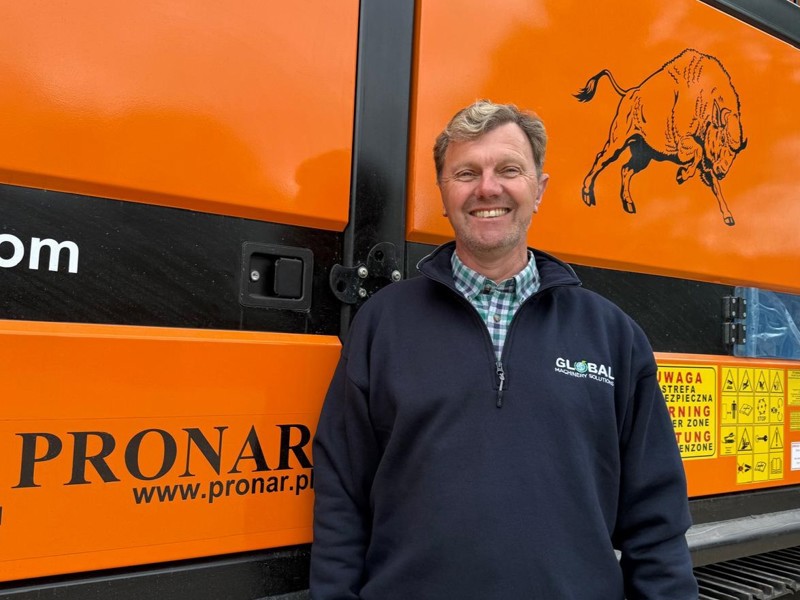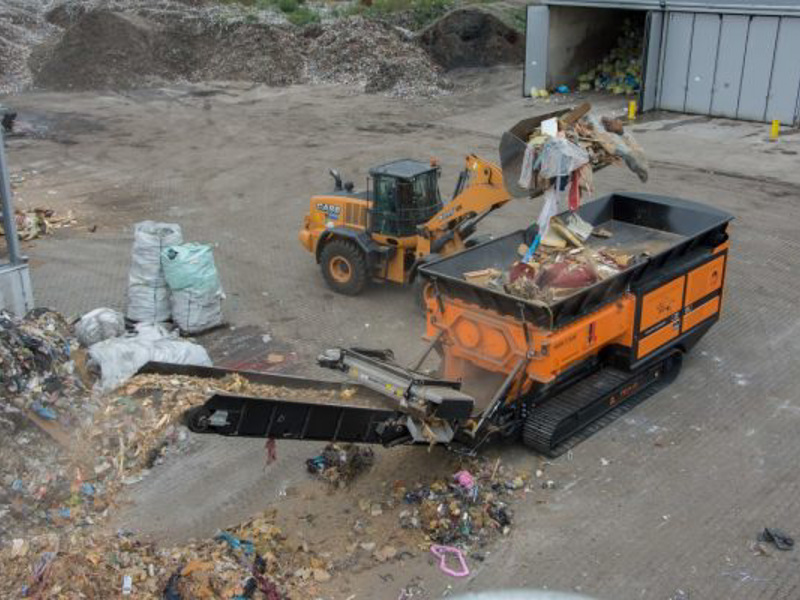How to Choose the Right Shredder and Supplier
Jason Purllant, our Recycling Sales Manager, talks about how the growing population and new laws are changing how waste management companies work. He says these companies must adopt new technologies to keep up with these changes.
After more than 20 years in the waste industry, I’ve witnessed huge changes in legislation and in how businesses are expected to handle increasing amounts of waste. With the UK population rising by over 15 million in the past two decades - and showing no signs of slowing - waste management companies have had to adapt. It’s no longer just about processing more waste; it’s about doing so efficiently, sustainably, and in line with government regulations.
Rising landfill taxes are pushing waste streams towards ‘zero-to-landfill’, forcing businesses to invest in new technologies to meet targets and remain competitive.
Rising landfill taxes are pushing waste streams towards ‘zero-to-landfill’, forcing businesses to invest in new recycling equipment technologies to meet targets and remain competitive.
The role of technology in waste management
Shredding technology has become essential in helping waste companies meet these demands. While the shredder supplier market is crowded with claims of superiority, all shredders serve the same fundamental purpose: making large waste streams smaller.
But the benefits go beyond size reduction. Modern shredders can separate out metals, plastics, and wood, broadening recycling opportunities. They also play a vital role in producing Refuse-Derived Fuel (RDF), which is a cornerstone of the UK’s greener energy plans. With new power stations being built to convert RDF into energy, shredding has become a gateway technology for both waste management and renewable energy.
Key considerations when buying a waste shredder
Choosing the right shredder isn’t just about the machine itself—it’s about how well it fits your business needs. Start by asking:
- Volume: how much waste do you need to process daily or weekly?
- Material: what are you shredding (wood only, general waste, MSW, etc.)?
- Output size: what specification is required? Power stations often have strict RDF requirements.
- Space: what footprint do you have available to operate the shredder?
Beyond the basics, consider:
- Servicing costs: what will ongoing maintenance cost per week?
- Aftermarket support: are parts and engineers available quickly? Waiting weeks for a part can cripple operations
- Downtime impact: your supplier should understand the financial and reputational consequences of breakdowns and react fast.
- Fuel costs: with shredders now running on white diesel, fuel efficiency is increasingly important.
- Ease of use: can operators set up and run the machine with minimal training and supervision?
Choosing the right supplier
The shredder itself is only half the equation. The supplier you choose will play a huge role in your long-term success. Key things to look for include:
- Responsive engineering support: same-day or next-day availability is essential.
- Parts availability: suppliers should hold stock and have contingency plans for breakdowns.
- Understanding of downtime costs: the right supplier will recognise the immense financial pressure businesses face when machines stop running.
- Strong partnership approach: from the sales process to the lifetime of the machine, support and communication should feel like a true partnership.
During high-demand periods - especially in winter when biomass energy needs surge - waste companies rely on suppliers who are proactive and solutions-focused. At the same time, waste businesses must also appreciate the investment suppliers make to minimise downtime.
The reality is all shredders will break down eventually. What sets suppliers apart is how they respond when that happens. That’s the true test of partnership, reliability, and business understanding.
Choosing the right shredder
Choosing the right shredder can significantly impact your waste management and recycling processes. Whether you're dealing with tyres, paper, or industrial waste, the right machine will enhance efficiency and sustainability. Let's explore how to select the best shredder for your needs.
Shredders come in various types, each designed for specific materials and purposes. Understanding the types available will help you make an informed decision. View Pronar's range of shredders.
Key Considerations
When choosing a shredder, several factors should be considered:
Material Type
Different shredders are optimized for different materials. If you need to dispose of tyres, a tyre shredding machine is essential. For mixed materials, a versatile recycling machine might be more suitable.
Volume and Capacity
Consider the volume of material you need to process. Industrial shredding equipment is designed for high-capacity operations, making them suitable for businesses dealing with large amounts of waste.
Maintenance and Durability
Choose a shredder that is durable and easy to maintain. Regular maintenance is crucial to ensure your equipment operates efficiently and has a long lifespan.
Specific Needs: Tyre Shredding
For those specifically interested in tyre shredding, it's essential to look for machines designed to handle the unique challenges of tyre disposal. In the UK, options for tyre shredding machine hire can provide flexibility and cost savings for businesses not ready to invest in a permanent solution.
Budget and Cost Efficiency
While cost is always a factor, it's important not to compromise on quality. Investing in reliable recycling machinery can save money in the long run by reducing downtime and maintenance costs.
Environmental Impact
Consider the environmental benefits of your shredder. Machines that promote recycling and reduce landfill waste contribute to sustainability goals. Look for equipment that supports efficient material recovery and recycling processes.
Conclusion
Selecting the right shredder involves evaluating your specific needs, understanding the types of machines available, and considering factors like material type, capacity, and maintenance. By doing so, you ensure that your investment not only meets your immediate requirements but also supports long-term sustainability goals.
Choosing the right shredder is a step towards efficient waste management and environmental responsibility. Make an informed decision, and you'll see the benefits in both cost savings and environmental impact.
Discover the full range of Pronar shredders Contact us for information or arrange a demo!




